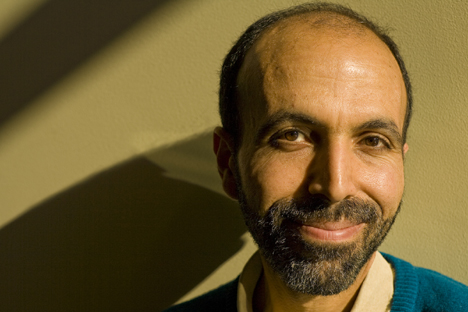
My name is Mohamed. I'm a professor at a prestigious American university and I'm internationally recognized for my work in evolutionary biology. If you were to put my full name into Google, you'd know all that in two seconds.
But last week, my name was enough to prevent an on-line computer store from selling me some DVD-creation software. In fact, I need this software to back up data created from genetics research I'm doing with funding from U.S. taxpayers. Yet, the U.S. Department of Commerce has a list of names for people who should be treated with suspicion, and one similar to mine is among them.
There are an estimated 15 million Mohameds, Mohammads, Muhammads and the like in the world today. It is believed to be the most popular first name for boys on the planet. Are they all terrorists, and are we really safer if none of them can back up their research and home movies? I suspect that the McVeighs or Kaczynskis of the country are not encountering this issue.
Because of my name, I am often unable to check in for flights online or even at airport kiosks for many major airlines. I have to wait in 30-minute lines to check in with the person at the ticket counter, even when I have no luggage to check. I always ask the attendant why I could not use the kiosk. Usually, I get the same lie: "The machine is malfunctioning." Curiously, it only malfunctions for me, not my travel companions.
Occasionally, I get the true answer. One official at an airport questioned me for an extended period and justified it by noting, "Well, your name is Mohamed," as though that was reason enough.
Indeed my name is Mohamed, and I am not ashamed of it. I am Arab by descent, although I never lived in the Arab world. My parents immigrated to the United States from Egypt in the 1970s, and one of their proudest moments was when they became naturalized U.S. citizens. I cannot imagine living anywhere else in the world, and I have benefited enormously from living here throughout my life.
However, I find it curious that our own government and many of our fellow citizens are unwilling to treat us and other Arabs as equal, and treat us instead with blanket suspicion and distrust. What purpose does this hassle serve? Is anyone safer as a result?
Returning from a Carnival cruise to the Bahamas (another hotbed of terrorist activity, no doubt), a Homeland Security officer pulled me out of line and had me sit in a room while several officers took turns asking me where I lived and worked. I was told this interview was "normal," but in contrast, a lady behind me in line who had no proof of citizenship (she "forgot" it) was just waved through to baggage claim. One officer asked me about the recent trip to Egypt noted in my passport. I responded that I went to see my grandmother one last time as she was lying on her deathbed (she passed away two months later). Of course, were I a malicious terrorist, I could have made up that story, and I wouldn't be dumb enough to have an Egyptian stamp in my passport in the first place.
Therein lies my problem with this racial profiling: It doesn't make anybody safer. I certainly appreciate the need for security. But does showing the same ID to a second person after an extra 30-minute wait actually make our air fleet and passengers more secure? Do my hour-long interviews following cruises that originated and returned in the United States actually keep the country safer? In the Internet age, couldn't my identity be verified without my noticing?
As with many more commonly recognized (yet less socially acceptable) forms of racial profiling, the effect of these behaviors only trivially enhances the security of society at the cost of greatly harassing -- and alienating -- the profiled group. It also sends the wrong message to the rest of the world at a time when the post-9/11 legacy of torture, warrantless wiretapping and imprisonment without due process is being re-examined.
The inauguration of Barack Hussein Obama provides a message of hope for the country -- that most of us are able to go beyond the biases and stereotyping attached to names, ancestry and pigment. But clearly, we still have a ways to go.